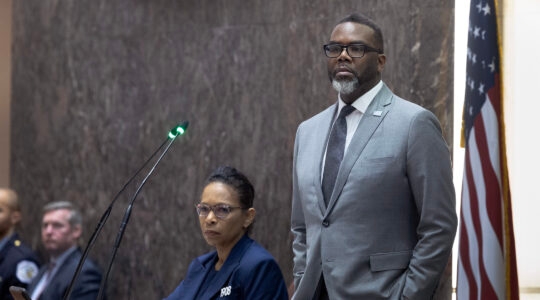Halacha is this-worldly. It deals with the observable, grounds itself in facts and reality, and provides practical, detailed guidance for daily life. It acknowledges life’s messiness while directing us through conflicting demands and competing responsibilities to ourselves, our families, and our neighbors.
This this-worldliness is so pronounced that halacha often frames religiosity in interpersonal terms. When asked to teach the entire Torah while standing on one foot, Hillel responded: “What is hateful to you, do not do unto your fellow. The rest is commentary; go and learn.” (Talmud Shabbat 31a). What’s startling here is that before God, before even “Love thy neighbor as thyself,” our starting point is to do no harm.
Halacha recognizes our human tendencies toward selfishness or inattention and repeatedly directs us to ensure others’ well-being. “Whoever wishes to be a hasid, a pious person,” Rav Yehudah teaches, “let him study the laws of damages.” (Talmud Baba Kamma 30a). True piety begins with our reality and care for others.
For some, however, worldly concerns don’t satisfy their religious appetites and longing for transcendence. Religious passion can be a powerful force of good, but only when anchored in reality and operating within boundaries. This is what Nadav and Avihu — the sons of Aaron, who were punished with death for bringing a “foreign fire” before God — failed to understand.
On the Tabernacle’s dedication day, amid God’s manifest presence and public rejoicing, Aaron’s sons were so religiously moved they felt compelled to draw close to God with their own incense offering. Instead of divine favor, this brought destruction: “A fire went forth from before God, and it consumed them, and they died before the Lord” (Leviticus, 10:2).
While many theories explain their punishment, the text itself is clear. They brought “a foreign fire, one that God had not commanded them” (Leviticus, 10:1). They acted on fervor without reflection or assessing propriety. When people follow unbridled religious passions, they often believe their actions are self-justifying: “If this is how my religious passion propels me to act, then it is a religious act; it gets me closer to God; it is good.”
This “ends justify the means” attitude contradicts classical Jewish thought. Looking at our world and atrocities committed in religion’s name confirms that unbridled religious passion can become evil itself.
This is why halacha, grounded in this world and in our responsibilities to others, must be our starting point. Religious passion alone speaks in absolutes and self-justifying terms. Halacha speaks in grays and nuance, emphasizes responsibility to others, helps navigate conflicting obligations, and teaches that lofty ends do not transform a sin into a mitzvah.
The key is to begin with boundaries, with concern for the other, with “what is right and good in the eyes of God.” (Deuteronomy 6:18). Within these rules, we can bring our passions to the experience: “And the people saw and rejoiced and fell on their faces.” (Leviticus 9:29).
This message resonates particularly today, especially regarding religious Zionism and Israeli society. We should aspire to a society caring for all Jews — religious and secular alike. It rejects religious coercion and commits to pluralism. It supports women’s empowerment and equality and protects LGBTQ+ individuals from discrimination and defends their right to build families of their choosing. It does not tell many of its citizens, “Go to Cyprus if you want to get married.” An Israel for all—rooted firmly in this world.
It is for this reason that I, along with Rabbi Avi Weiss and so many others, founded Dorshei Torah v’Tzion to run in the World Zionist Congress election. In 2020, we won two seats in the congress and served as bridge-builders, helping to ensure that the congress included voices from across the political and religious spectrum. Now, we are running again to make sure that these values remain represented in Israel’s national institutions.
I encourage you to vote for Dorshei Torah v’Tzion (Slate #18) in the Zionist election. Together, we can work to build an Israel that is committed to all of Am Yisrael, an Israel that protects all its citizens, combats antisemitism and anti-Zionism, leads the global fight for social justice, and supports equality of opportunity for everyone. An Israel that is guided by the principle of doing “what is right and good in the eyes of God.”
Rabbi Dov Linzer is the rosh yeshiva of Yeshivat Chovevei Torah.
JTA has documented Jewish history in real-time for over a century. Keep our journalism strong by joining us in supporting independent, award-winning reporting.
This article was sponsored by and produced in partnership with Dorshei Torah v'Tzion, a US Zionist slate running in the World Zionist Congress election. This article was produced by JTA’s native content team.
More from Dorshei Torah v'Tzion





